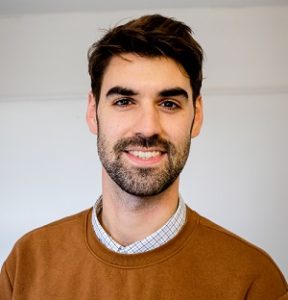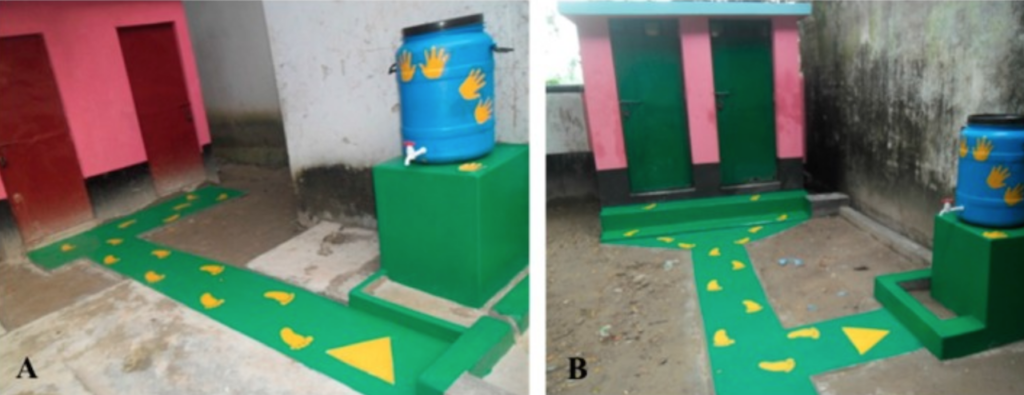Unlocking the potential of behavioural science to improve health outcomes
 In this blog, Programme Manager Andrew Woodcock discusses how behavioural science interventions have been used in the region, and how these techniques have the potential for wider use across the health and care system.
In this blog, Programme Manager Andrew Woodcock discusses how behavioural science interventions have been used in the region, and how these techniques have the potential for wider use across the health and care system.
There has been greater recognition, in recent years, of the broad and complex range of factors which contribute to an individual’s overall health. By understanding – and accounting for – the wider determinants that influence health, the treatment and prevention of ill health cannot solely rely on biomedical models. Instead, behavioural and social sciences play an important role as part of a multifaceted approach to influencing the numerous everyday decisions that have both a positive impact on our health, such as exercise, smoking, alcohol, diet, and engagement with healthcare services.
Behavioural science is the study of how people behave and why (UN Innovation Network 2021). Taking elements from economics and psychology, the field seeks to understand what influences human intentions and decision-making. Behavioural science has applications across all sectors to improve uptake or engagement with services and has contributed to the success of public policies in the fields of education, energy, marketing and the environment throughout the last decade. These applications are often initiated in the form of ‘nudges’, where decisions are influenced in subtle, often low-cost ways to improve outcomes, such as the positioning of the most profitable products where they will be most visible on shop shelves.

Nudge techniques in a Bangladeshi primary school (Source: globalwaters.org / USAID)
Nudge techniques in a Bangladeshi primary school. This approach has particular relevance to health and care initiatives given the importance of our behaviour in the prevention and treatment of ill health. There are numerous examples from across the globe where the use of behavioural science techniques have been applied to influence health behaviours in a positive way. In Bangladesh, the transmission of deadly disease is often exacerbated through poor hand hygiene, particularly in children. To address this, simple ‘nudge’ techniques were piloted in two primary schools; a raised platform and large water bucket were placed outside toilet cubicles and bright paint was used to create a walkway with footprints towards the hand-washing station.
Despite no formal education or information about the changes, hand-washing increased from just 4% to 68% with the simple path and paint measures. This impressively increased to 72% after two weeks and was sustained at this level after another four weeks.
Taking inspiration from their effectiveness in other areas, behavioural science measures have been applied in the South Yorkshire and Bassetlaw region to improve the uptake of cancer screening services. Over the last two years, the South Yorkshire & Bassetlaw ICS Cancer Alliance have been working with behavioural science consultancy Caja on the ‘Nudge the Odds’ programme. The initiative uses behavioural insights to understand which population groups exhibited low uptake of cervical, breast and bowel cancer services. Carefully framed messaging is then used when corresponding with these patients, as well as consistent language in SMS text reminders to aid attendance at appointments.
Through the use of these ‘nudges’, the intervention resulted in a 19-27% increase in the uptake of cancer screening in the region, in addition to addressing health inequalities in the region. In light of this success, the programme is now being expanded to cover a wider range of cancer pathways, utilising an array of ‘push’ and ‘pull’ interventions which aim to improve patient outcomes.
Here at the Yorkshire & Humber AHSN, the SYB Innovation Hub team have released a new podcast episode which shines a light on this initiative, as well as exploring the use of behavioural science methods in the wider health system. We were delighted to be joined by Tracey Turner, Project Manager at the SYB Cancer Alliance and Nigel Guest, Director at Caja, who shared their knowledge and insights from their involvement in this work. You can listen to the new podcast episode here.
The episode is one from the new ‘Innovation Station’ podcast series by the SYB Innovation Hub team. Released in line with the work of the Hub, it aims to highlight innovative projects and ideas which are improving health and care services in the SYB region. Hearing directly from those involved in the innovation landscape, it is hoped others will be able to learn from, and potentially replicate, similar work in their area.
If you have examples of innovative work that you have been involved in, we would love to hear from you. You can submit your stories via our website or contact the team via SYB.Innovation@yhahsn.com. Here you can also share ‘Challenges’ where you think innovation may provide a solution to an unmet need being experienced.
